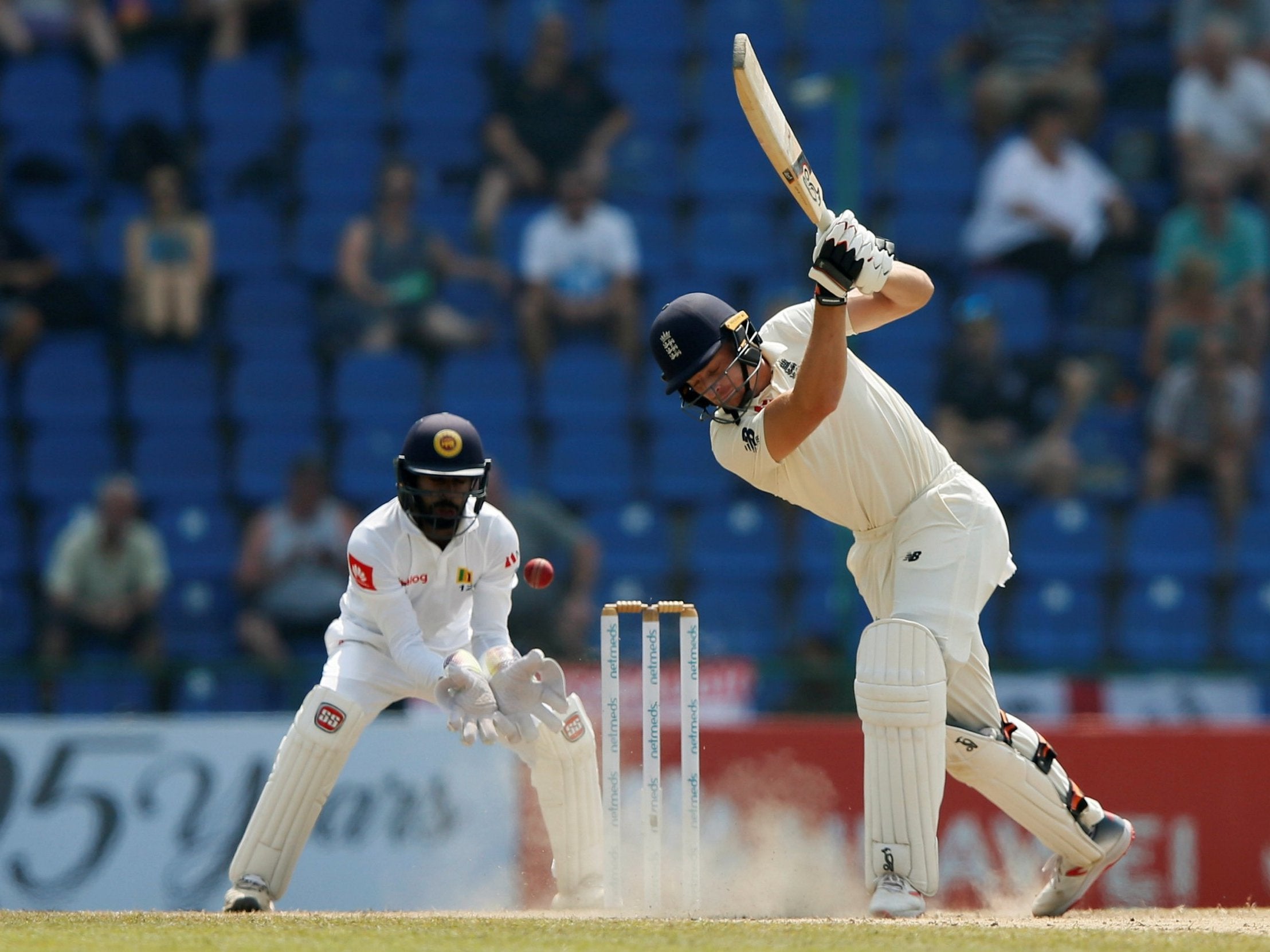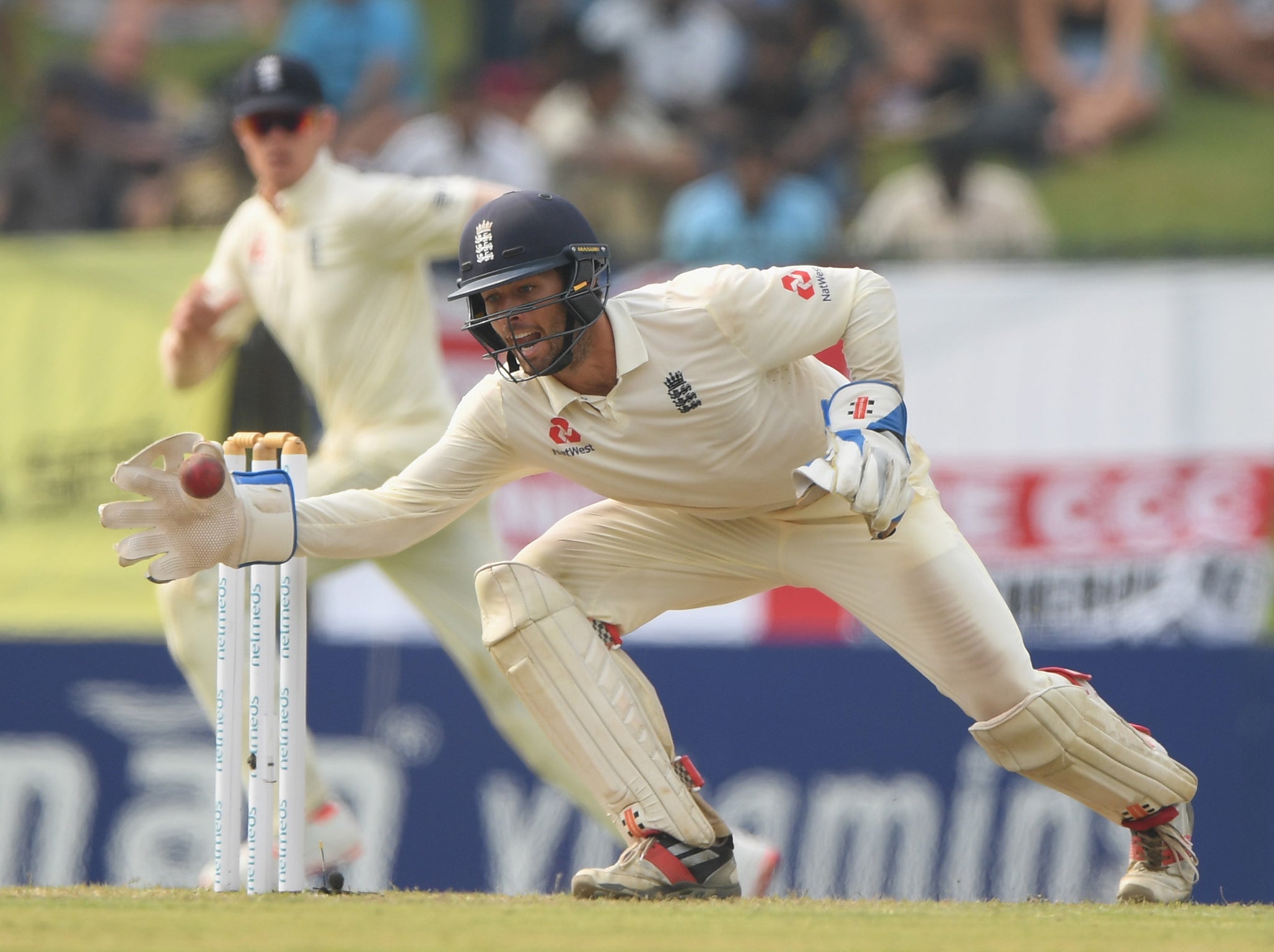England vs Sri Lanka: Boom or bust attitude pays off for Trevor Bayliss as ODI influence begins to shine through
The decision to play attacking cricket on the sub-continent could easily have backfired but is it any surprise that England’s ODI brilliance under Bayliss is now having an effect on the Test side?
There is the very real chance that this England win in Sri Lanka, their first overseas series victory in nearly three years and on the sub-continent in nearly six years, was a bit of a one-off.
With just three Tests in the series, England secured victory with two wins playing attacking cricket that those around the camp would call controlled aggression but others might label boom or bust. In a small sample, it paid off.
The result on this occasion was very much boom for the tourists and it came about as a perfect storm of increasing ODI influence among the Test squad and the change in mood that has brought, as well as a flexible squad, Alastair Cook’s retirement and, as always, a little good fortune.
“Off the field it’s starting to get there,” said coach Trevor Bayliss, reflecting on one of his most impressive achievements since taking over the England set-up.
“Obviously there’s a few more guys in that one-day team in the Test team with [Adil] Rashid and [Jos] Buttler but it’s starting to get a feel-good feel just like that one-day team. Hopefully those results continue.”
Perhaps it should be no surprise. After all, England’s greatest strides under Bayliss have come in limited-overs cricket, where a young, tight-knit group of talented players have managed to produce a brand of assertive, dominant cricket capable of beating anyone on their day.
Translating some of that into the longer-form has undoubtedly produced results, with England often counter-attacking when they have looked at their weakest. In Sri Lanka, it nearly always came off.
“We’ve had criticism at times for the way we’ve approached the game,” Bayliss added, “but one thing that never gets spoken about is the skill of these guys to go out and play in that fashion and score 600+ on that type of wicket.
“That was fantastic.
“The whole time we’ve spoken about being positive and playing your own game in that positive manner.

“For example, I thought Keaton Jennings and [Ben] Foakes down in Galle – their innings were fantastically positive. They played in their fashion in a positive manner.
“It was made partly easier because of the runs we had on the board and what was happening at the other end. But to me that’s a perfect combination of batters.
“We’ve now got those two plus [Rory] Burns in the team. We’ve got three guys that probably haven’t quite got the shots of some of the other guys in the team and to me that’s a pretty good combination. You’ve got guys that can put pressure on, you’ve got guys that can bat around them as well.
“As I said, there’s just a good feel. And when there’s a good feel around the team the environment to actually learn and get better is enhanced.
“It’s a point we’ve been trying to get to and with the two or three extra guys we’ve got in the team who appear to have fitted into that system very effectively and can obviously play, what they’ve shown in a couple of matches is a positive sign for the future.”
Bayliss referred specifically to Rory Burns and Ben Foakes, both of whom made their debuts in the first Test at Galle and went on to make significant contributions to the eventual series victory.
Surrey opener Burns had more than earned his call-up after season upon season of dominance at county level and he translated that form to the international scene, performing the unenviable task of replacing the retired Cook.
Burns’ county teammate Foakes was not even in the original Test squad but got called up after Jonny Bairstow injured himself playing football after training during the ODI series.

The wicketkeeper was deployed as a specialist gloveman, with England foreseeing a special need for perfection behind the stumps in such challenging conditions. They got the impeccable keeping they had hoped for but Foakes also heads into the final Test as England’s top run scorer, leading Bayliss to tip him and Burns for stellar international careers.
“There’s no secret in the fact we’ve been looking for two or three, maybe even four, positions to sort of get nailed down over the last few years. I think on this particular tour we’ve probably seen two or three of those positions getting nailed down.
“I think the job that Burns and Foakes have done in the two Tests they’ve been here – it’s looks like they’re playing their 30th or 40th Tests. Their calmness has been outstanding.
“I just think we’ve come upon two or three guys that have a good possibility of having long careers for England.”
Join our commenting forum
Join thought-provoking conversations, follow other Independent readers and see their replies
Comments
Bookmark popover
Removed from bookmarks